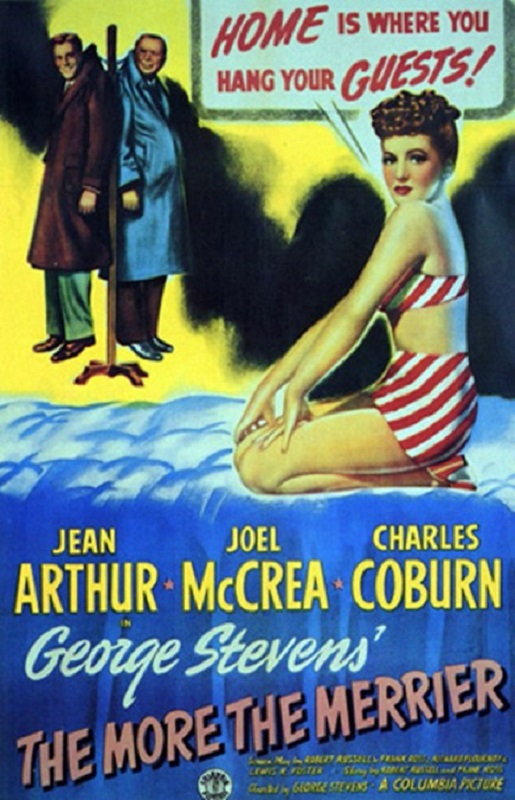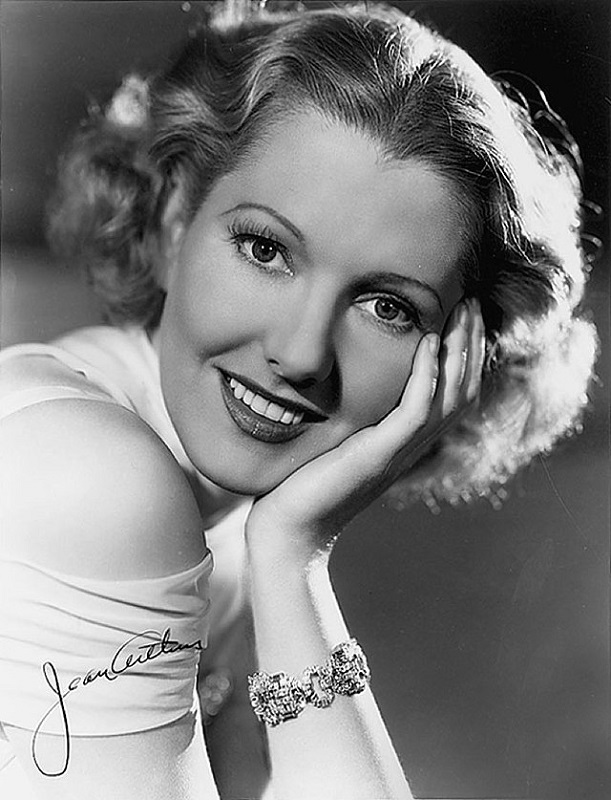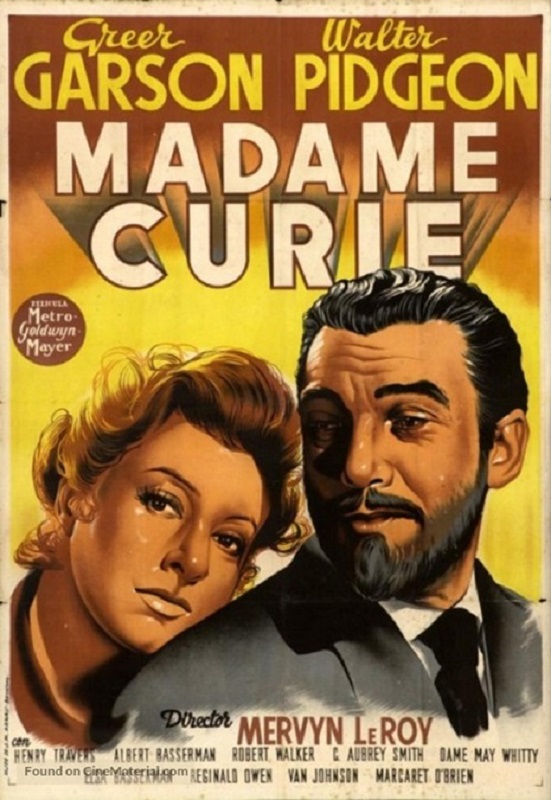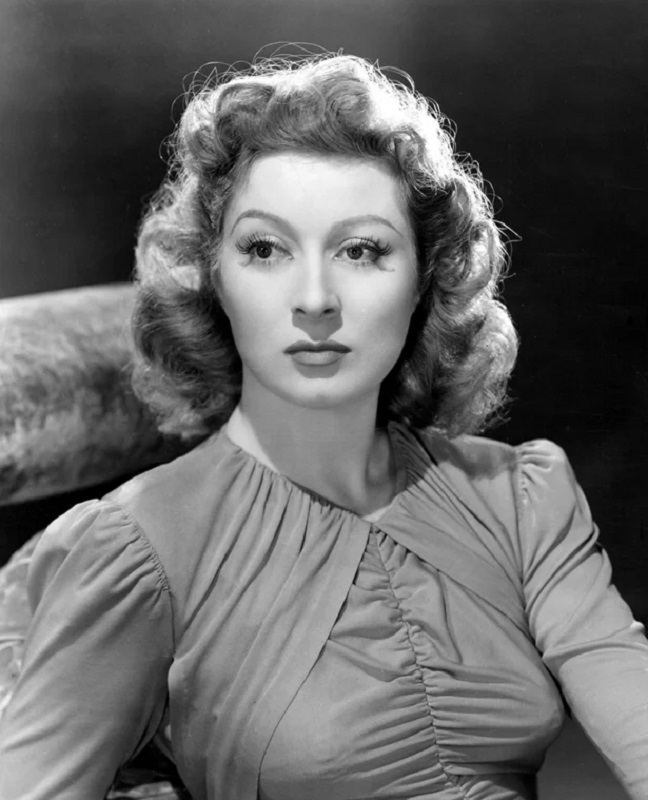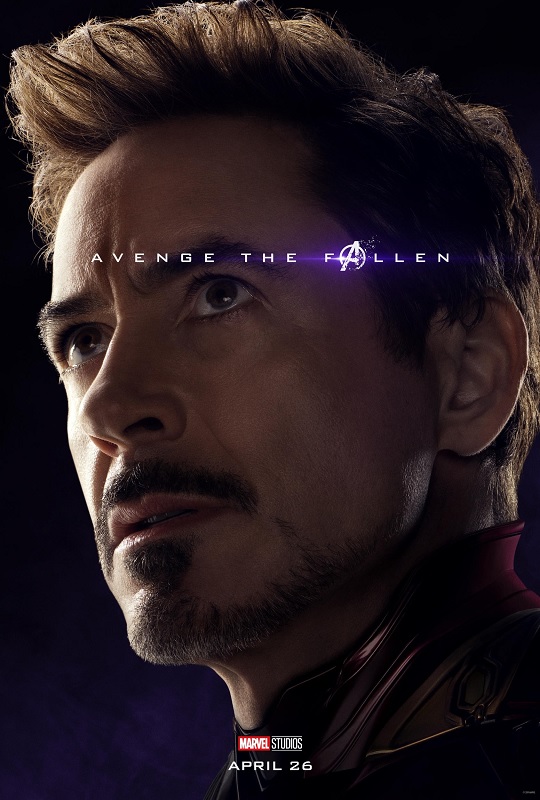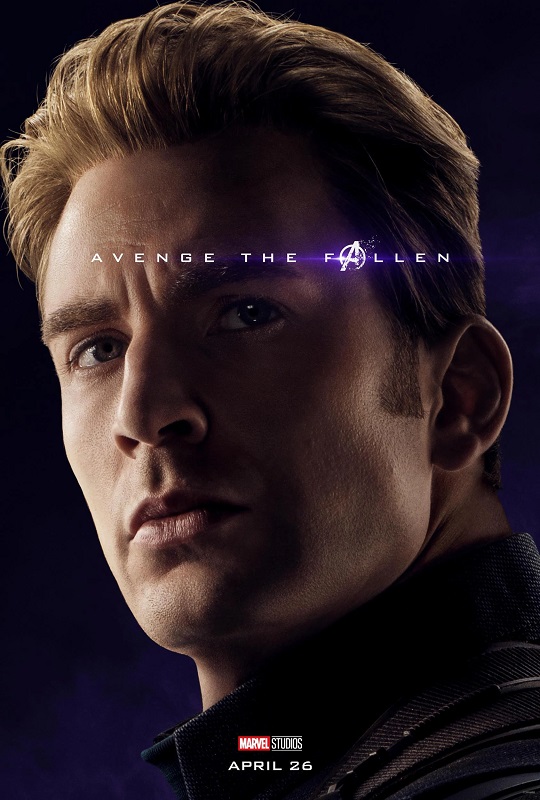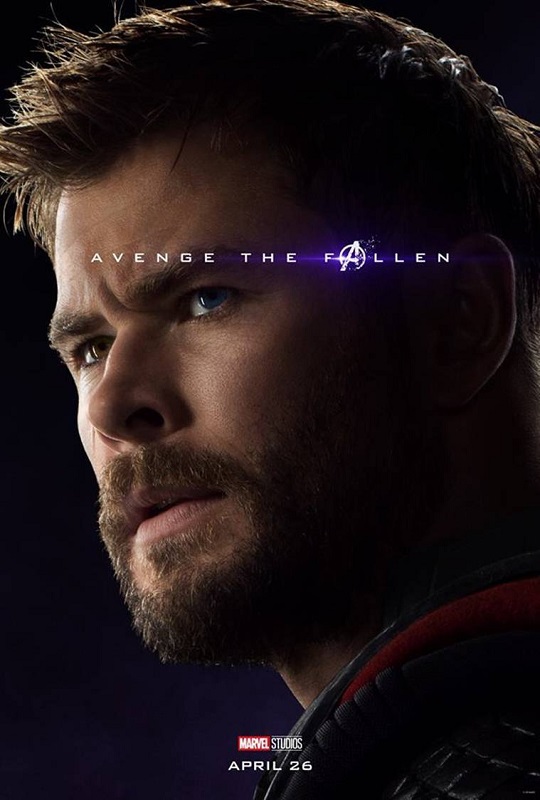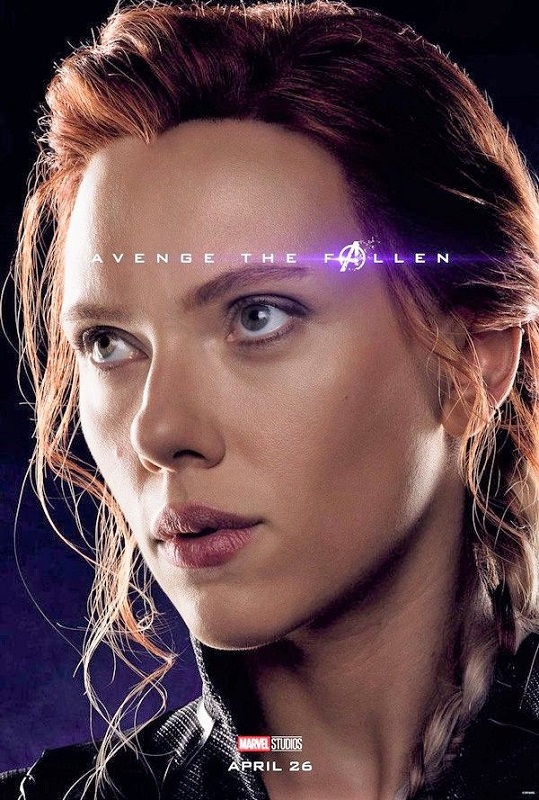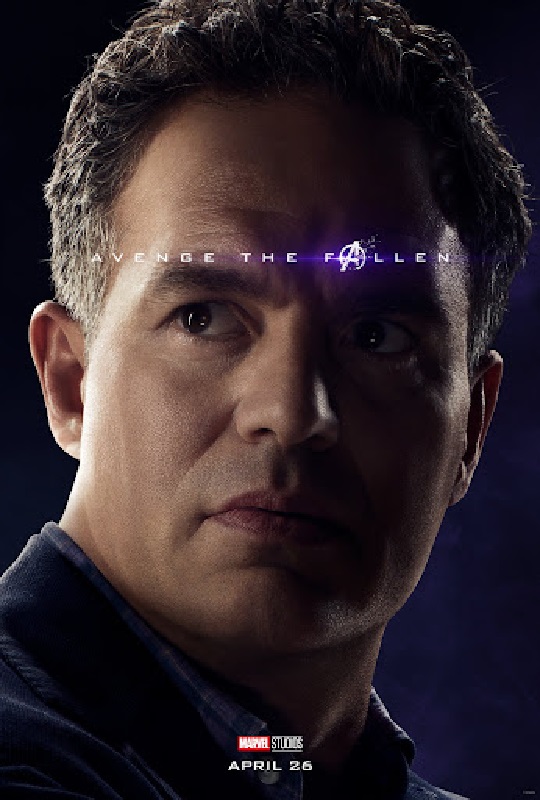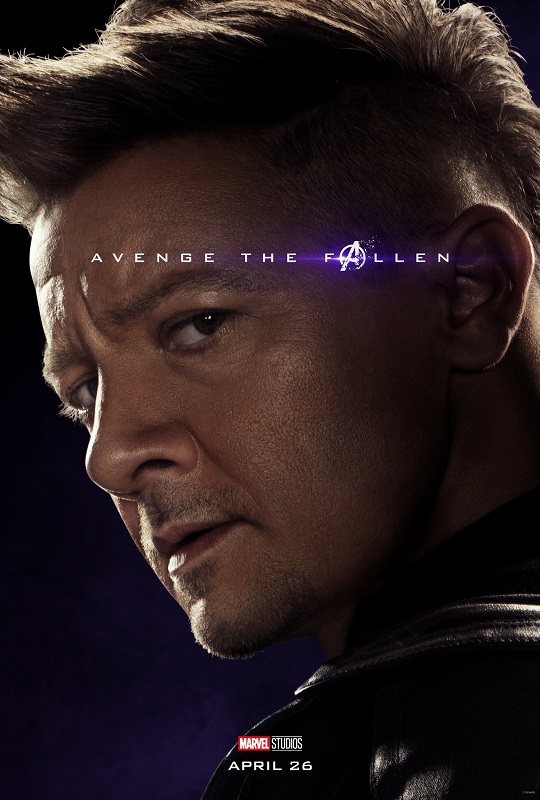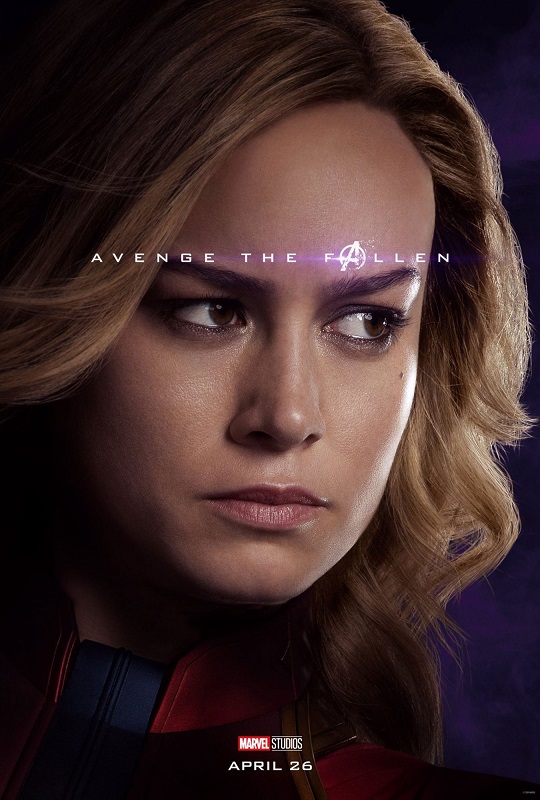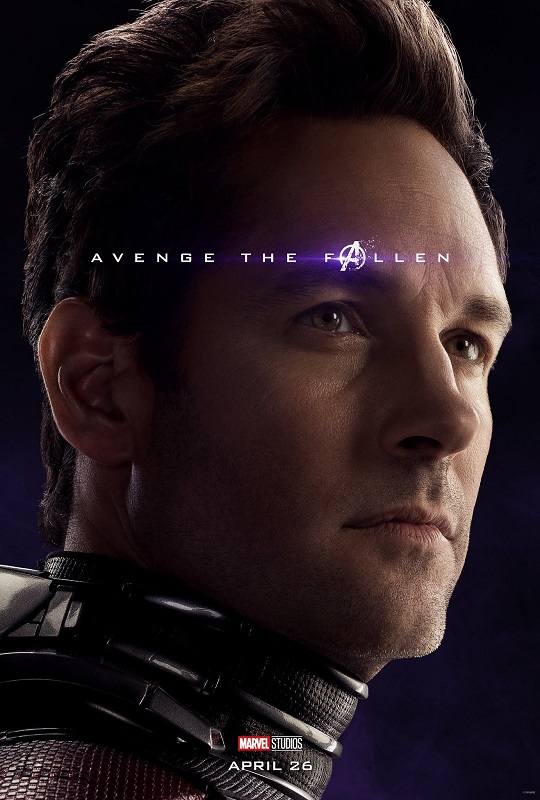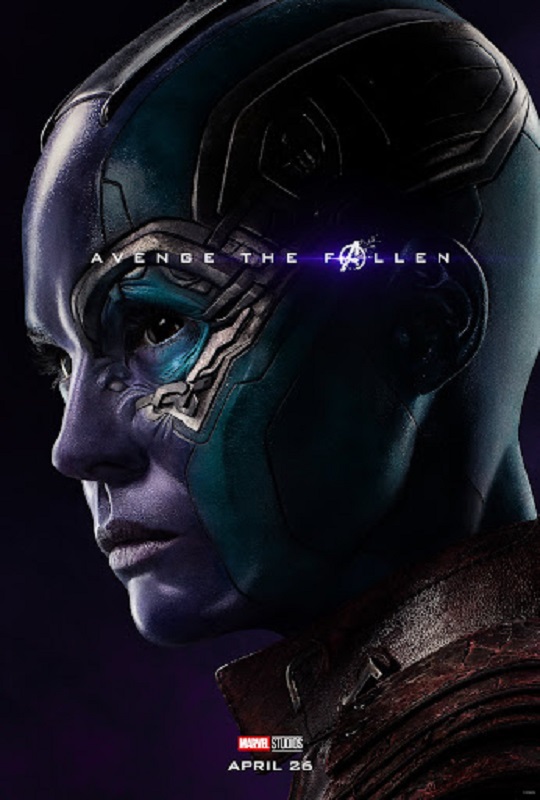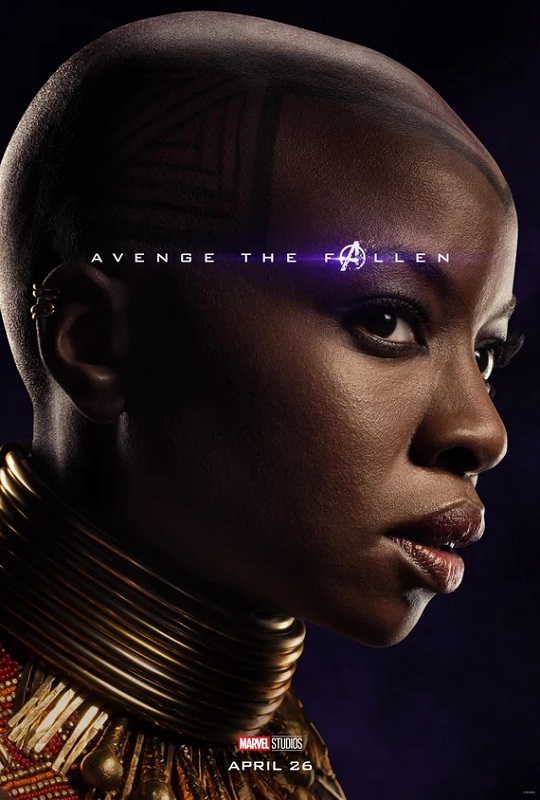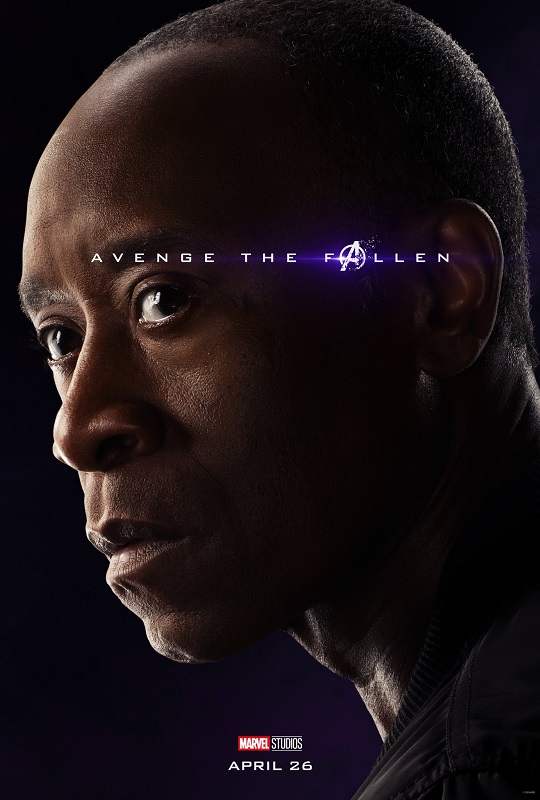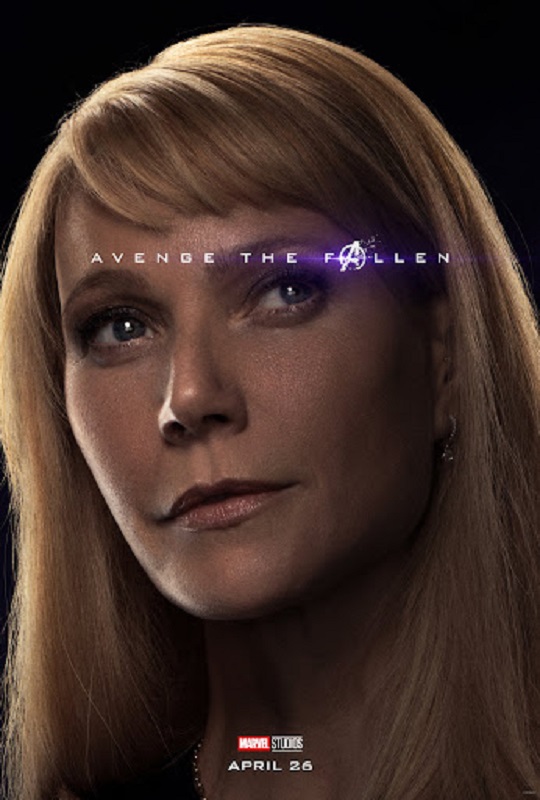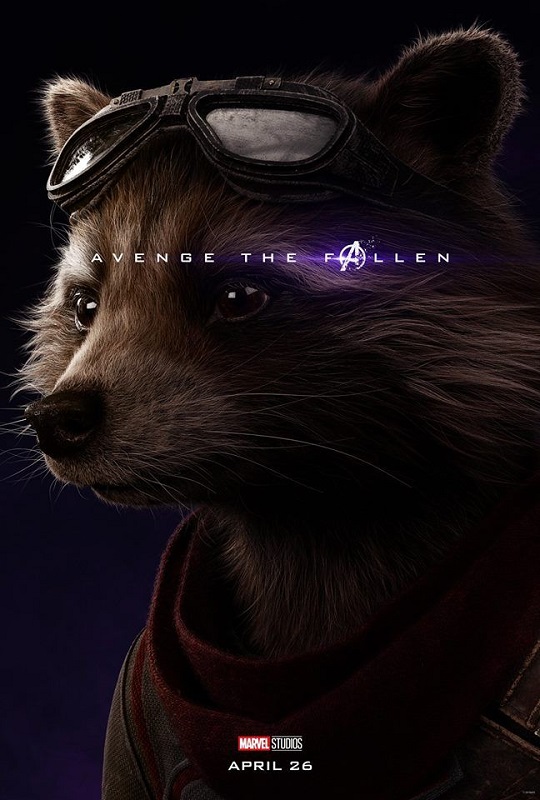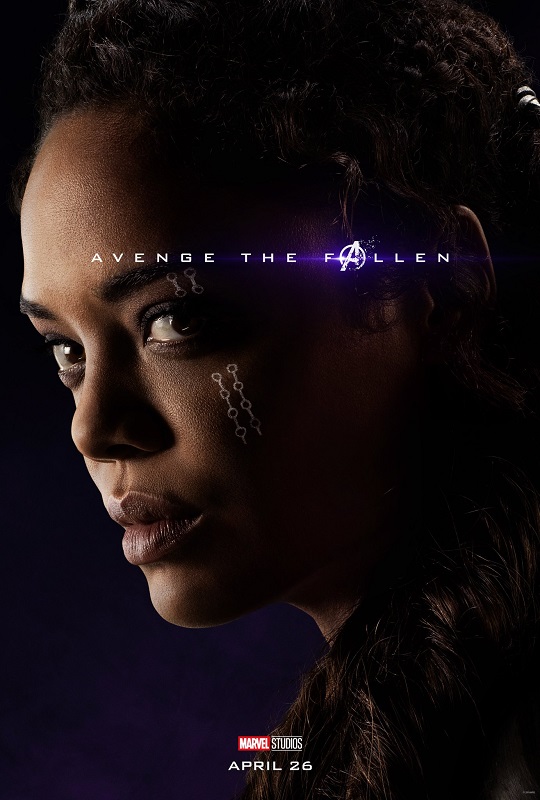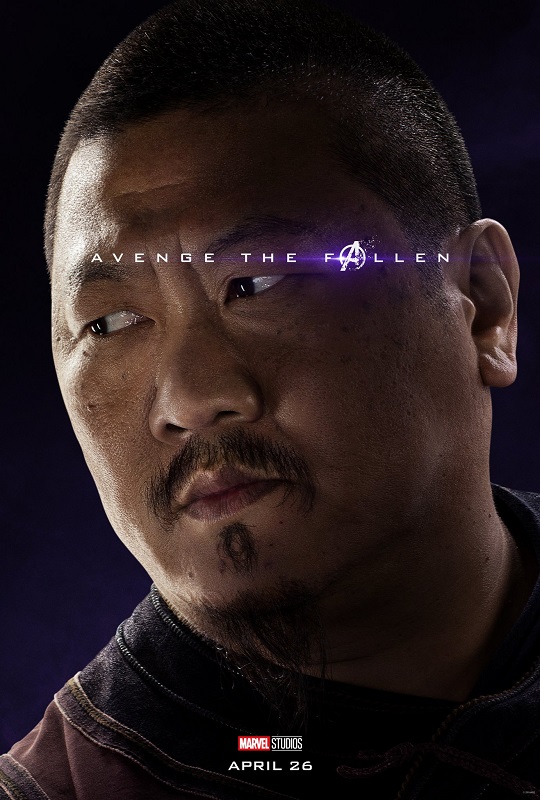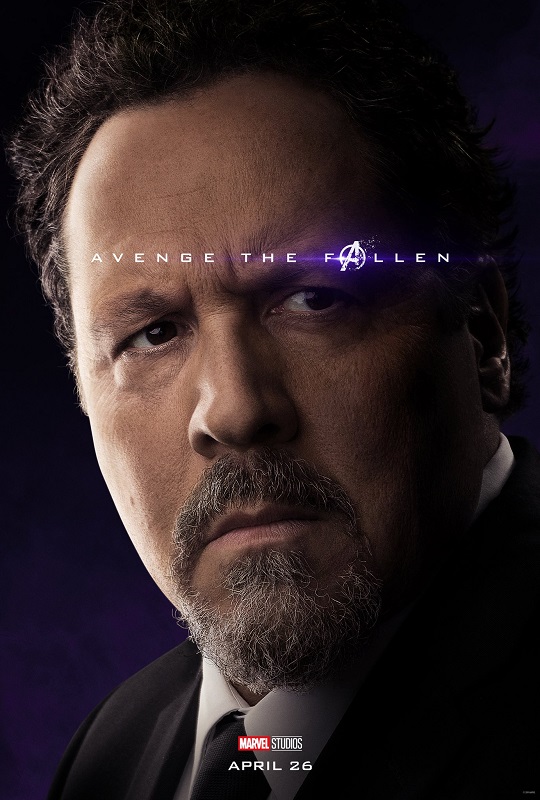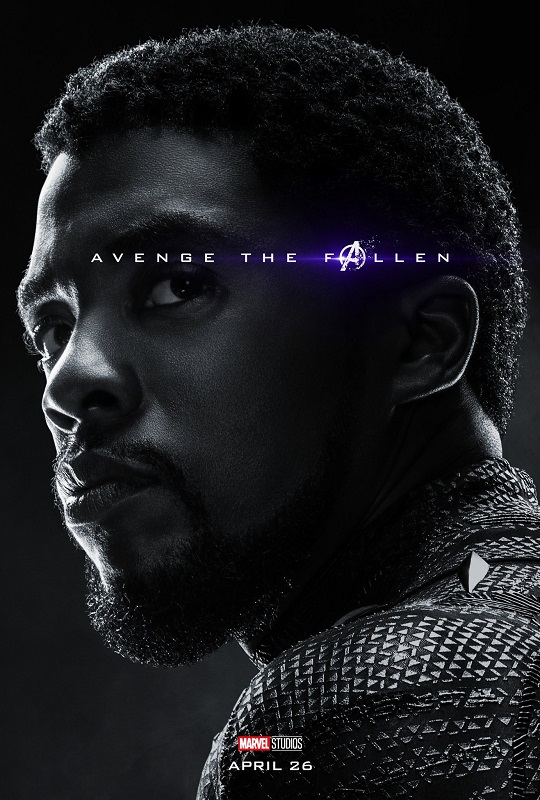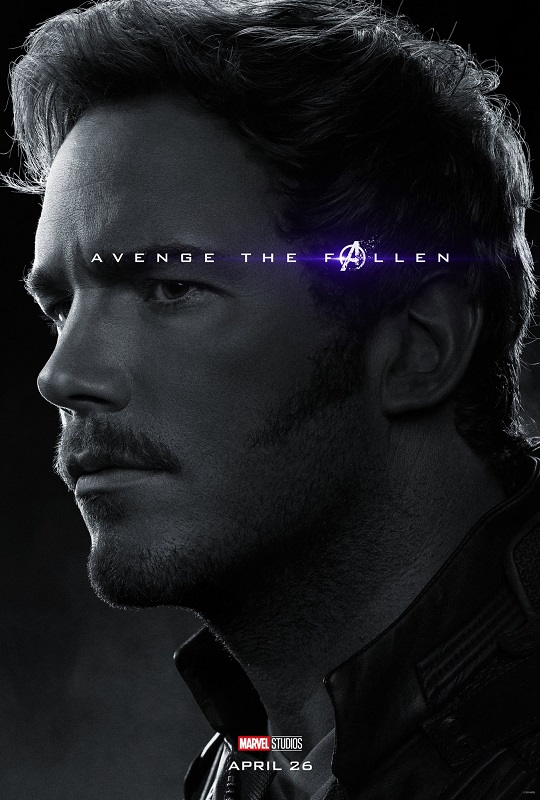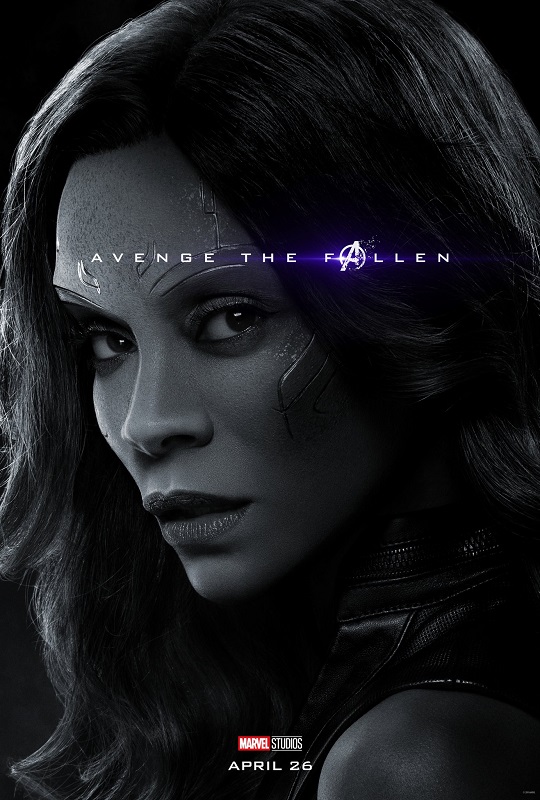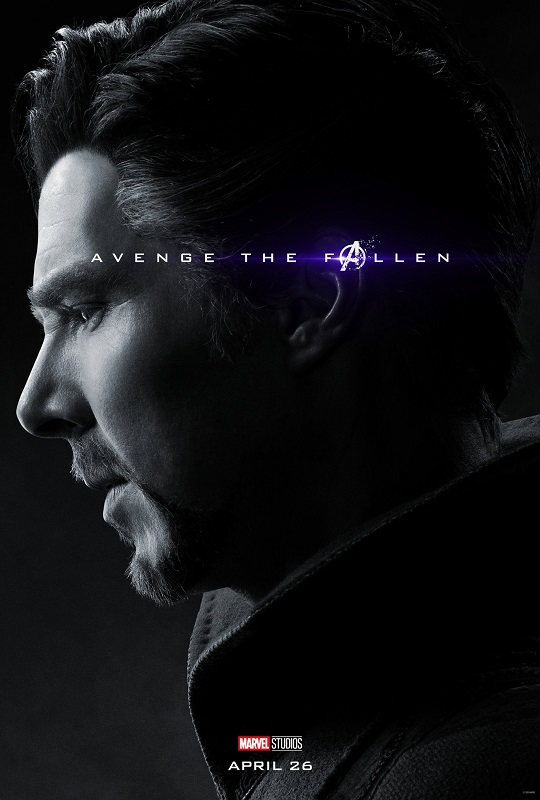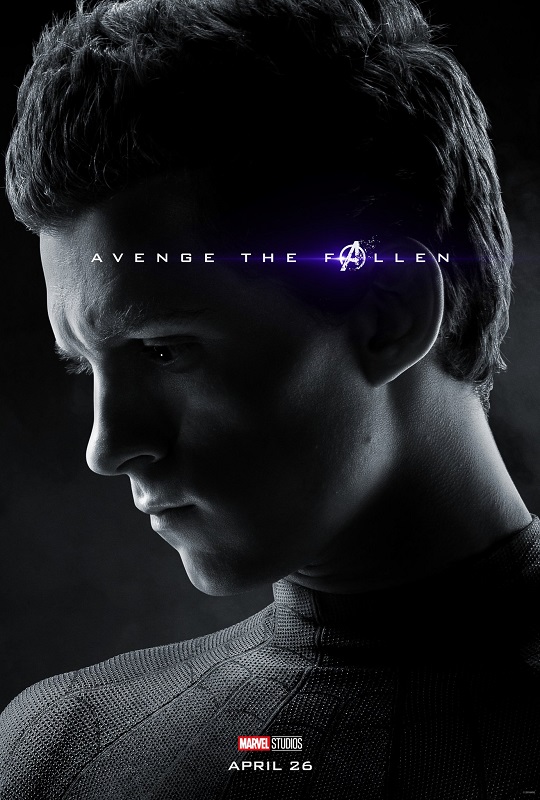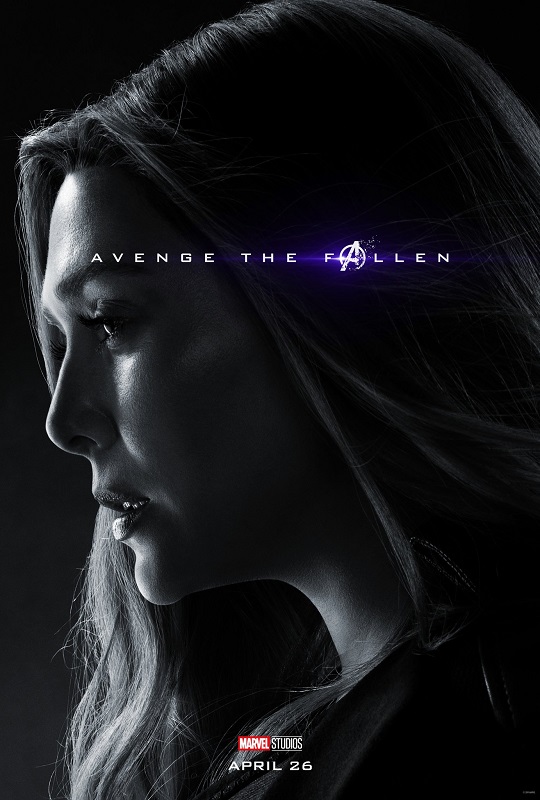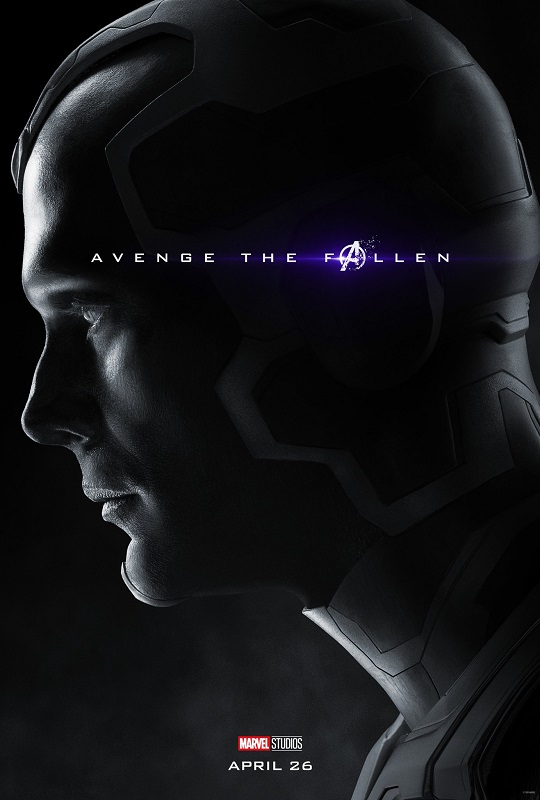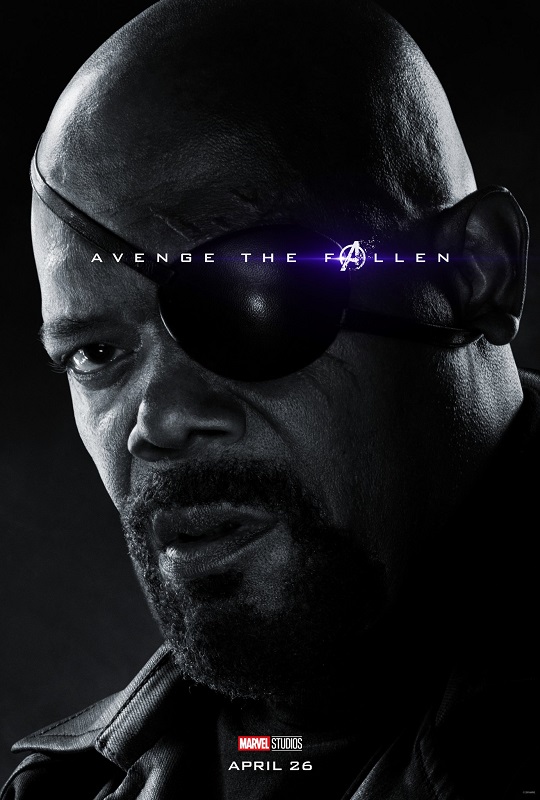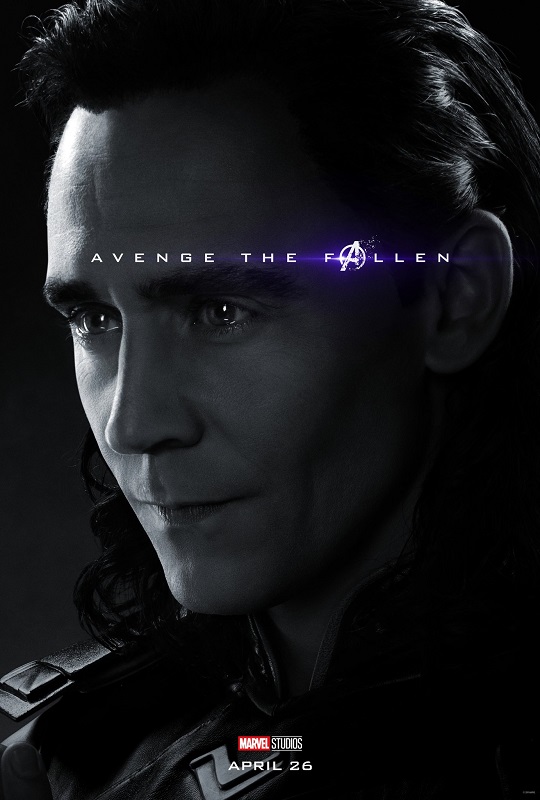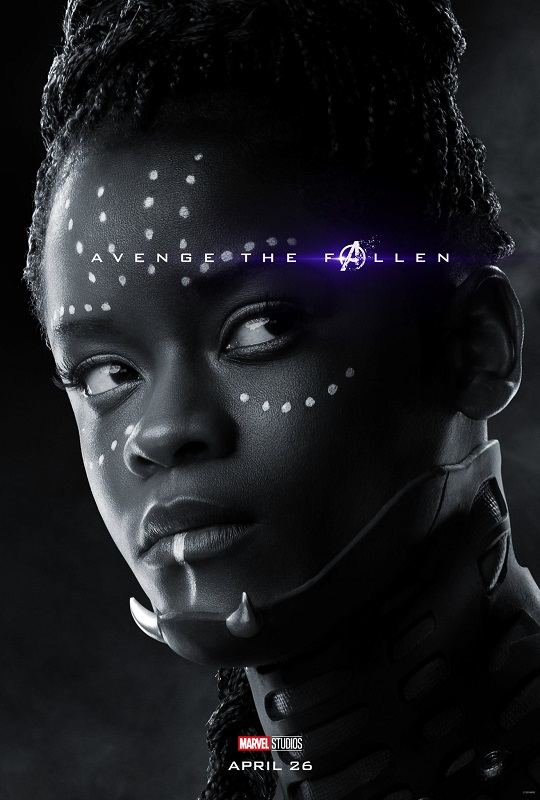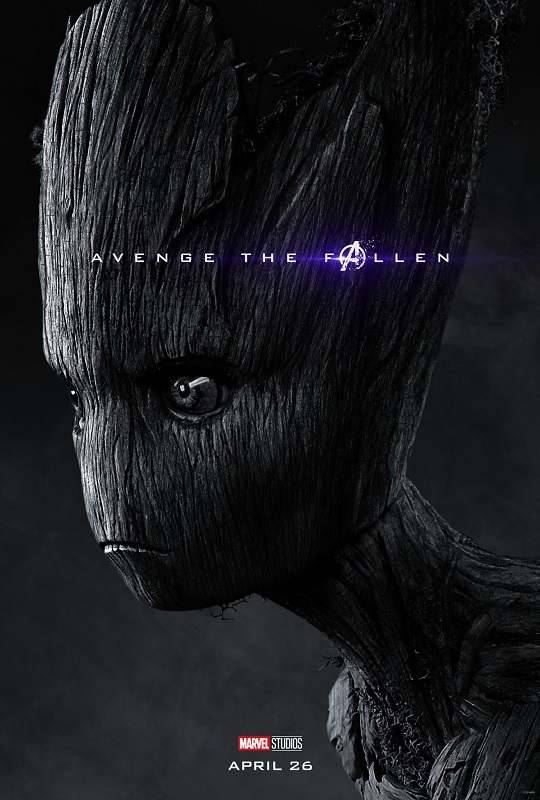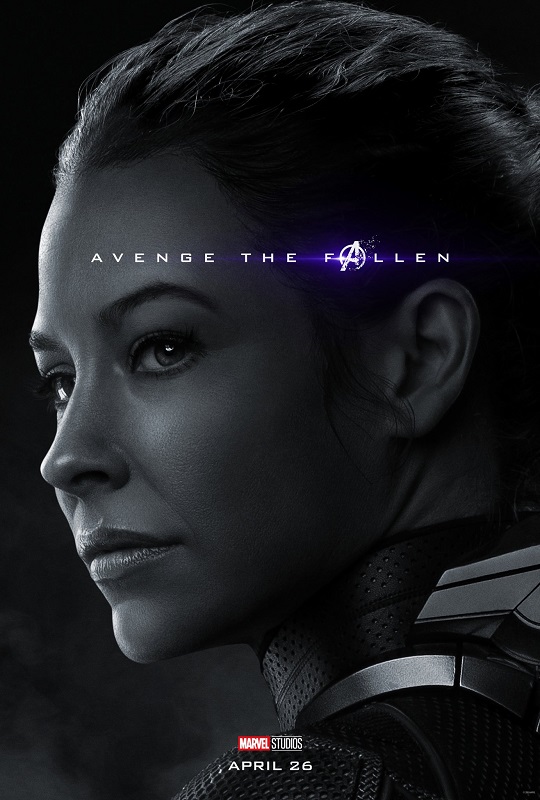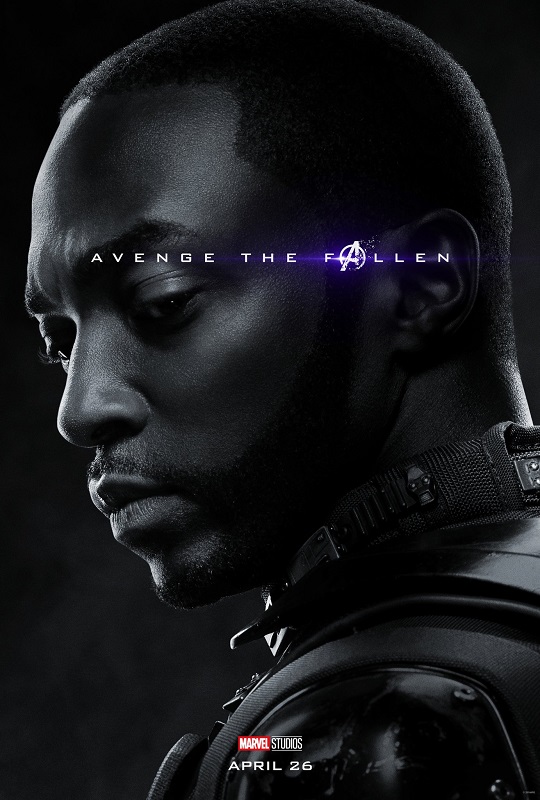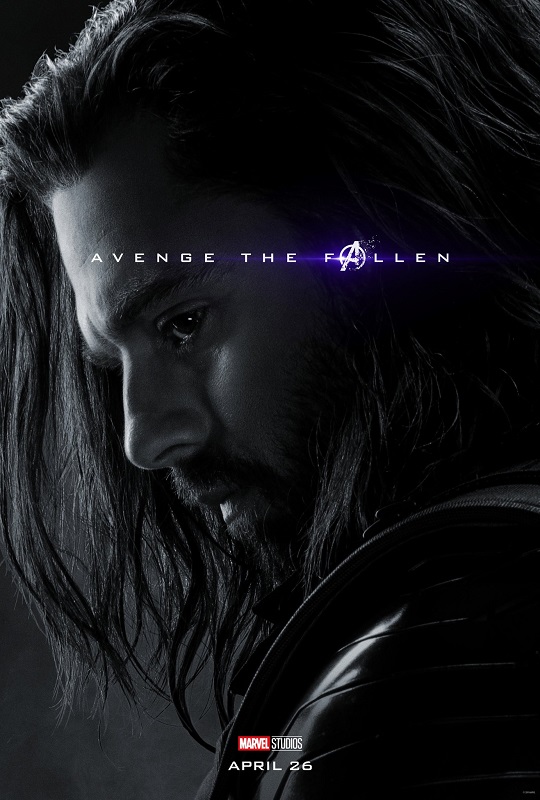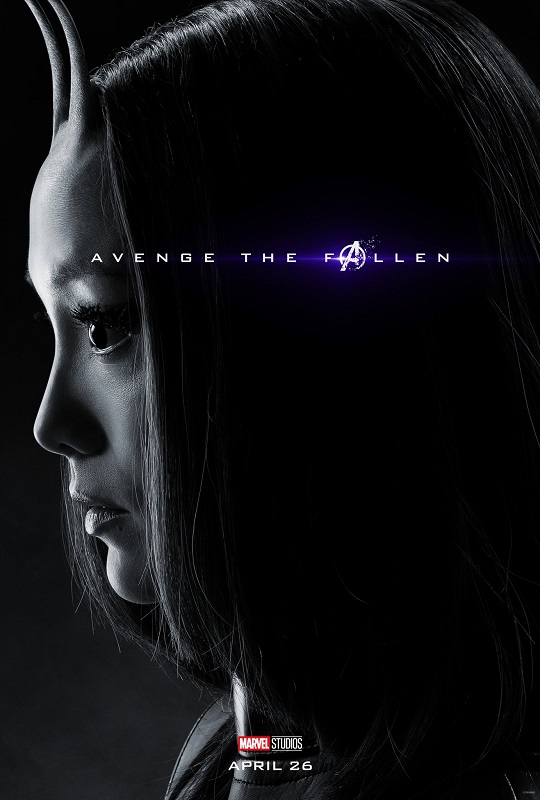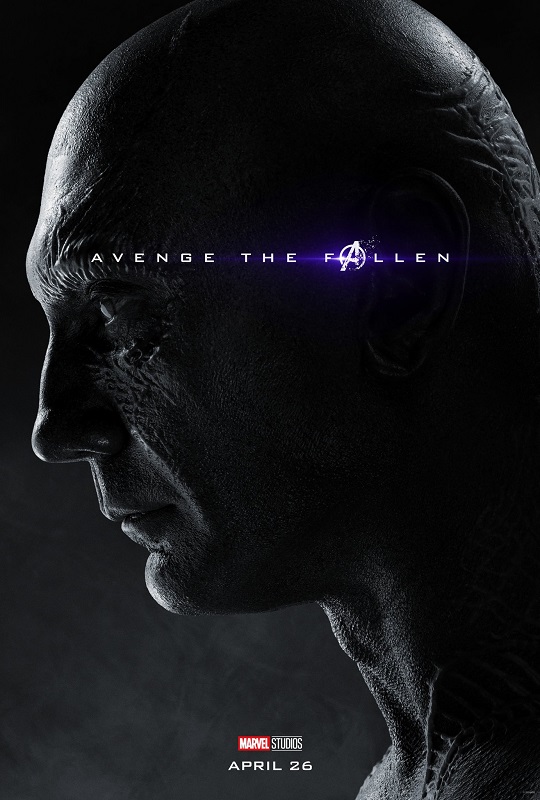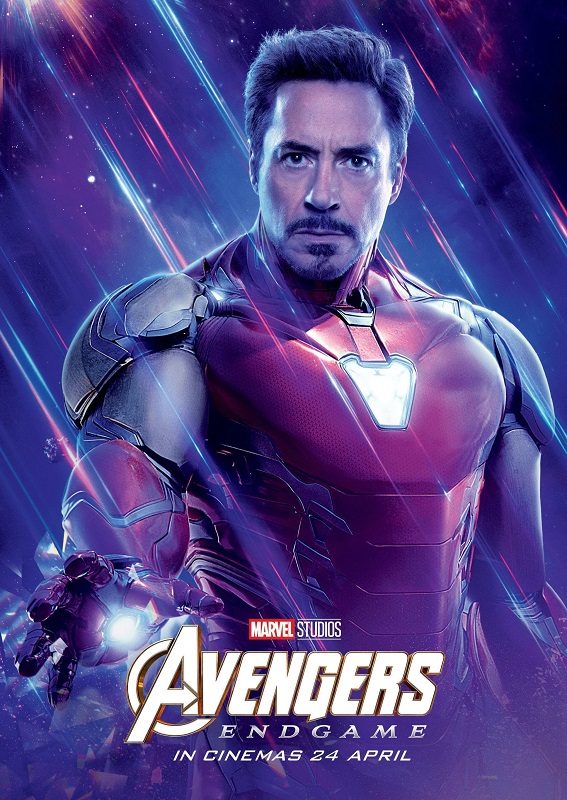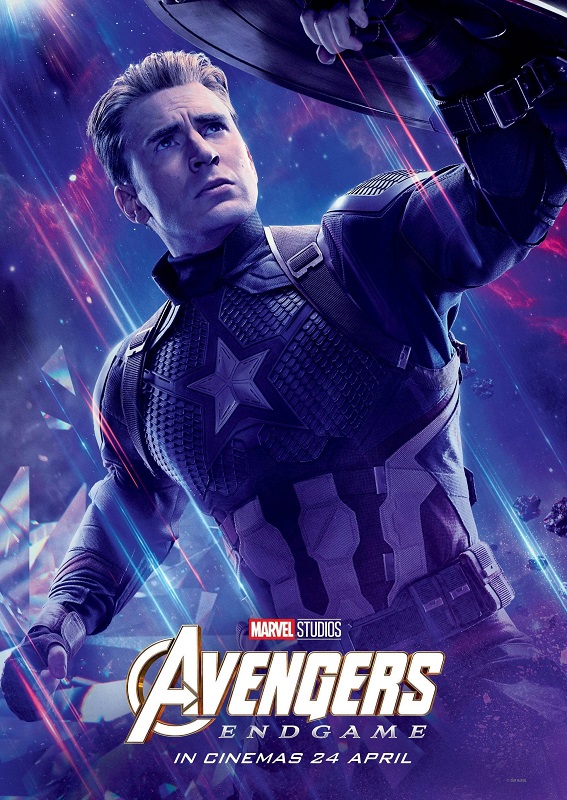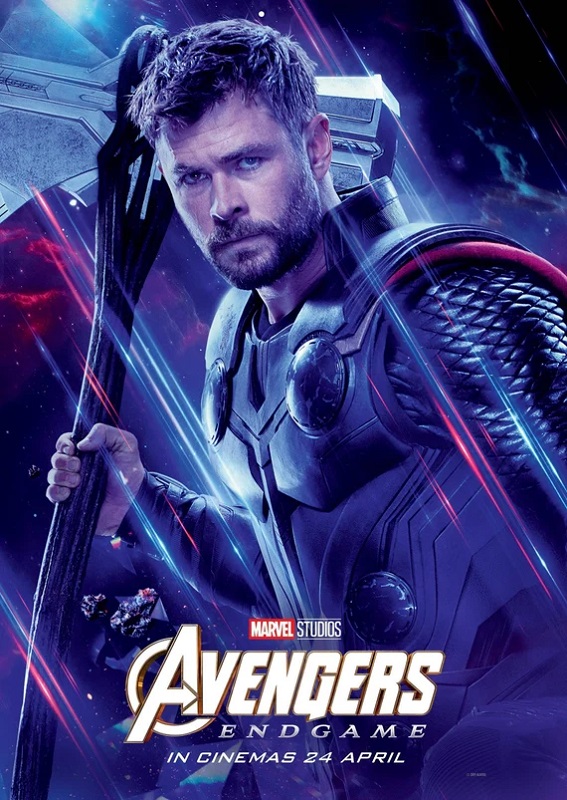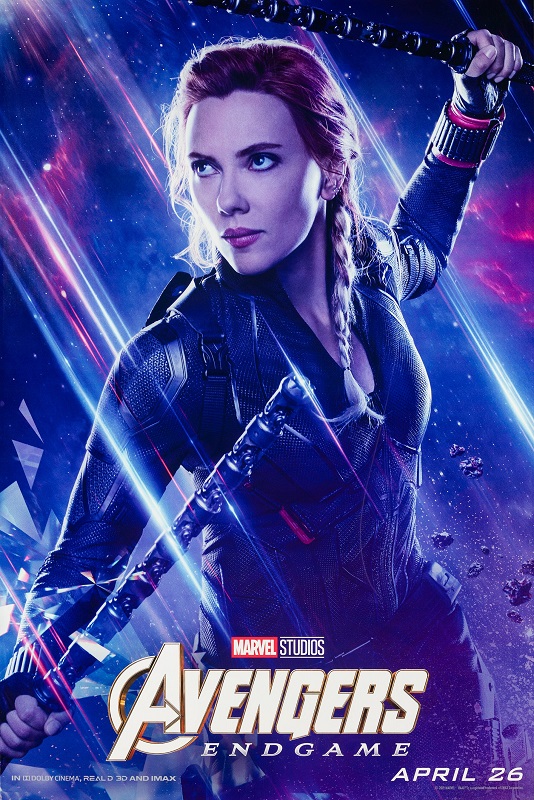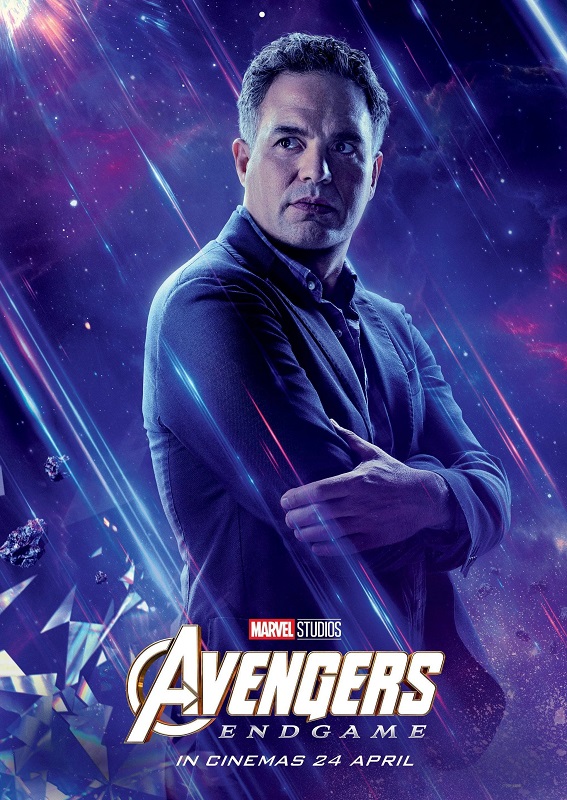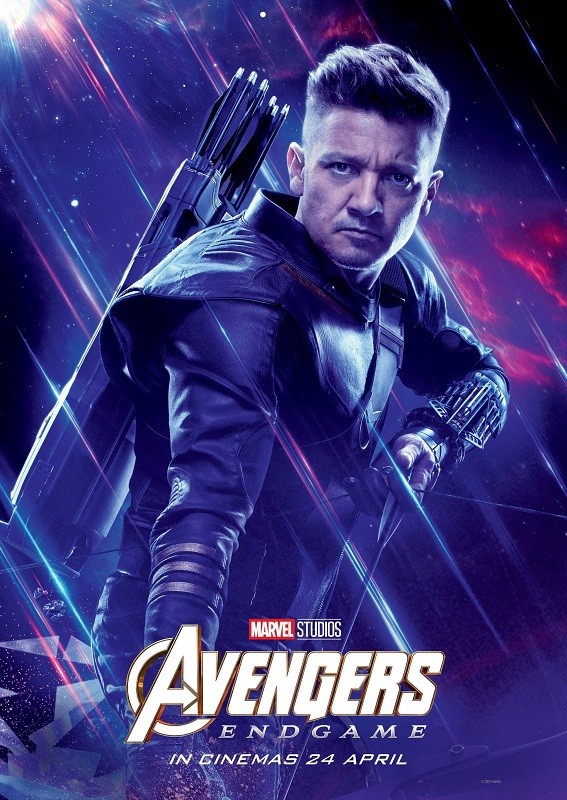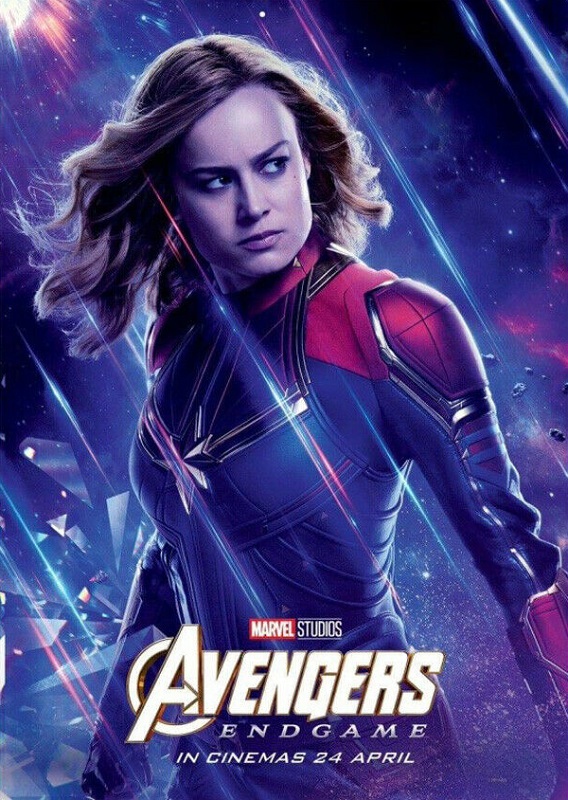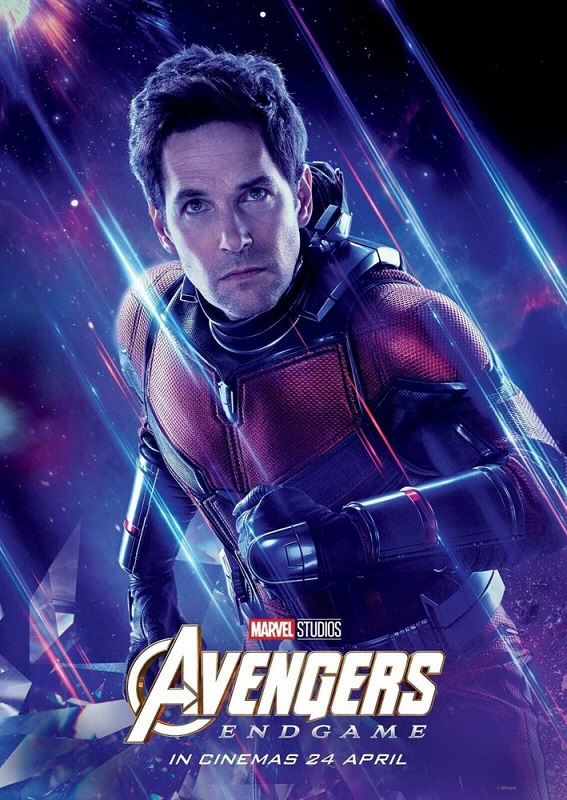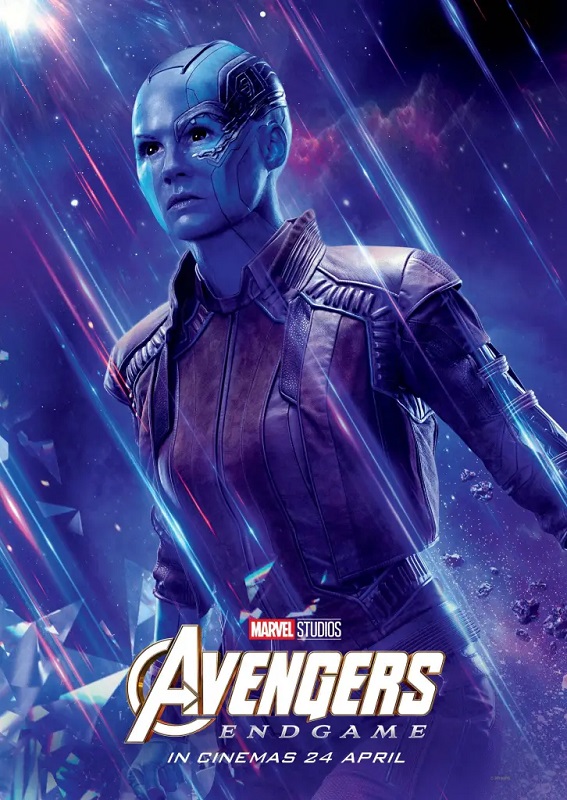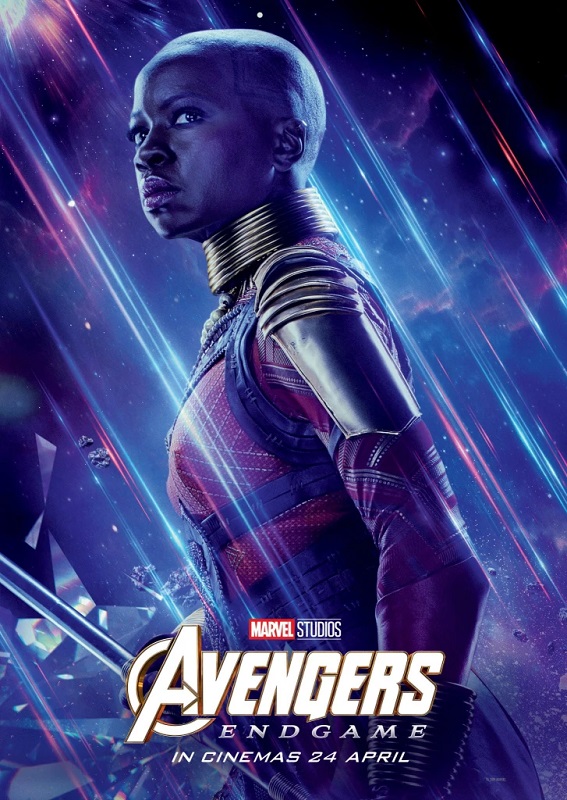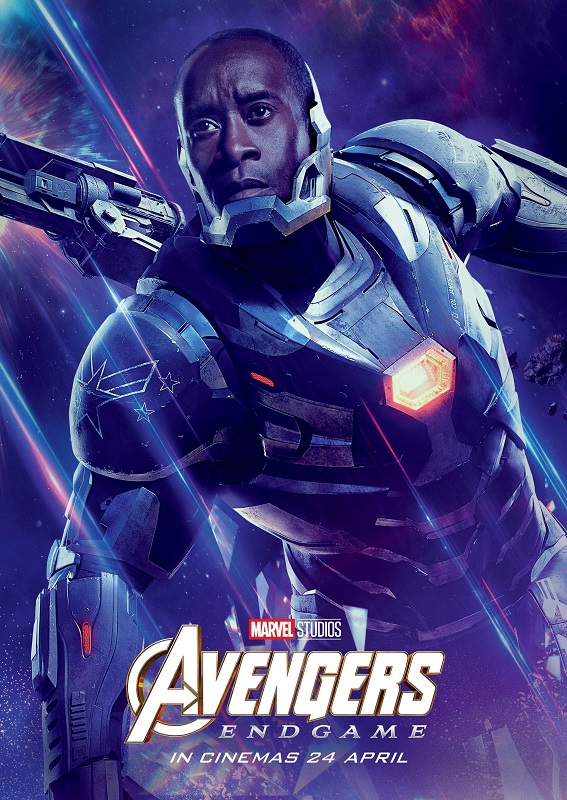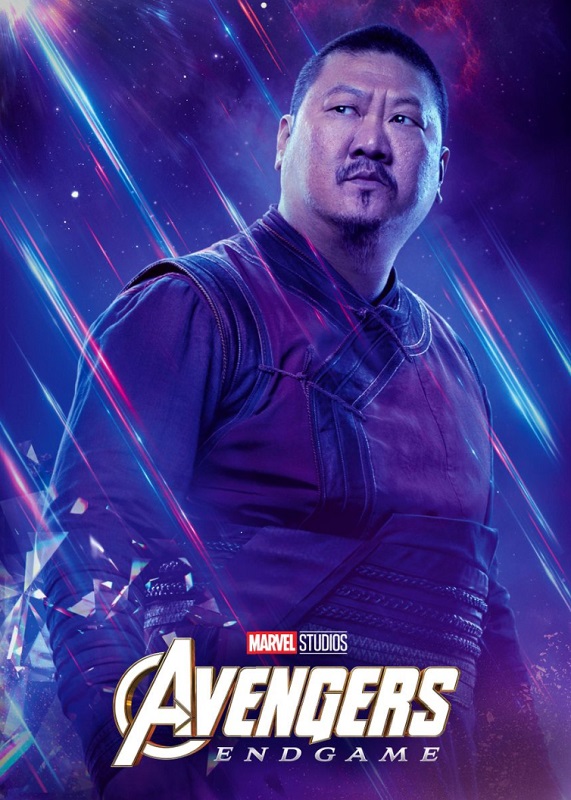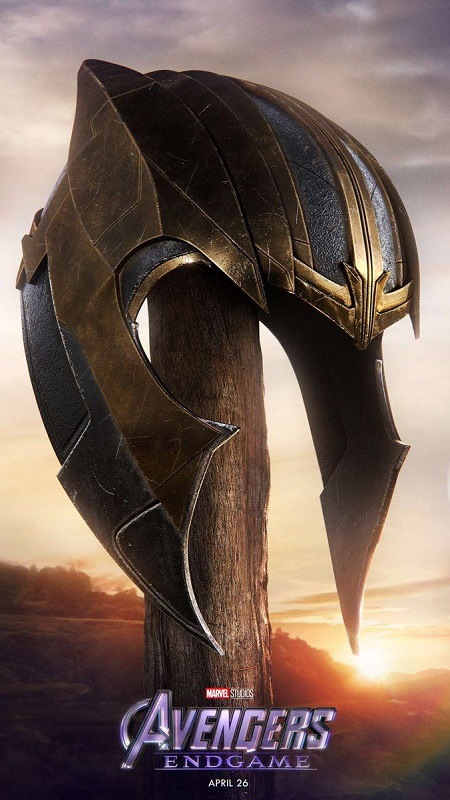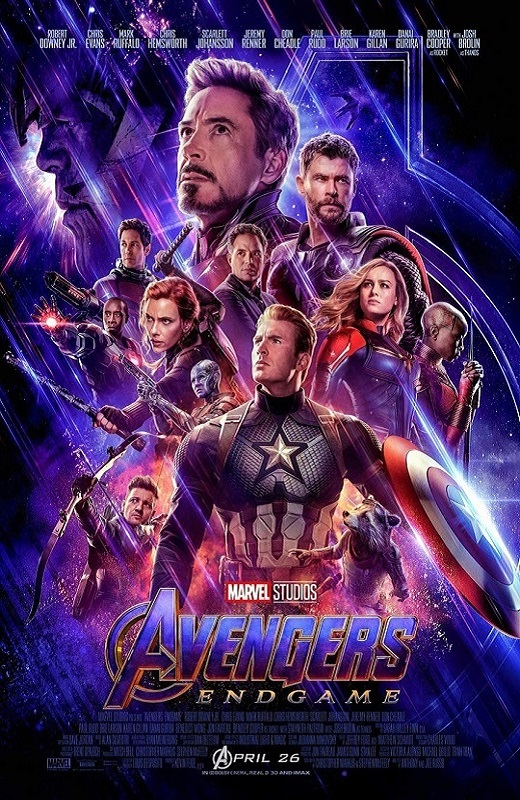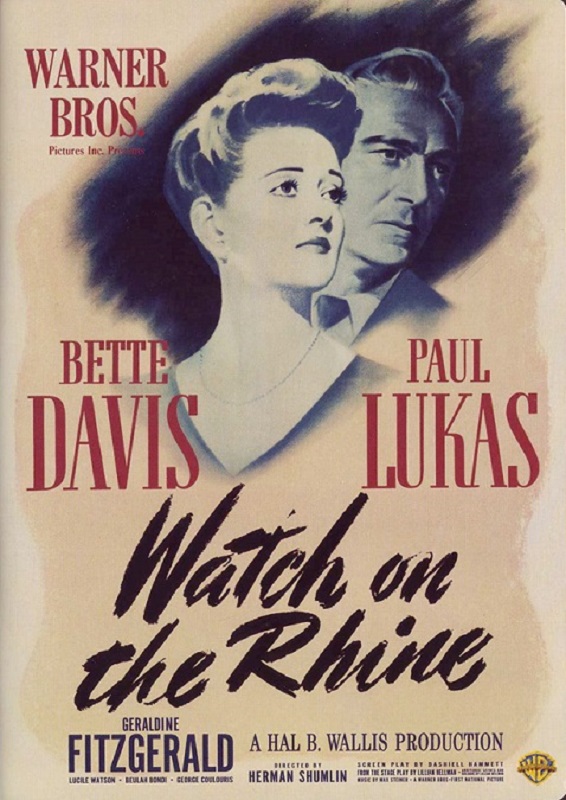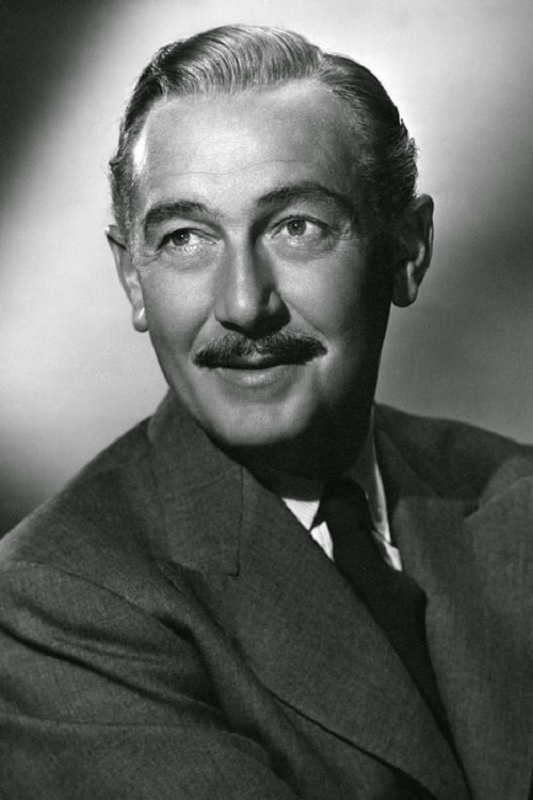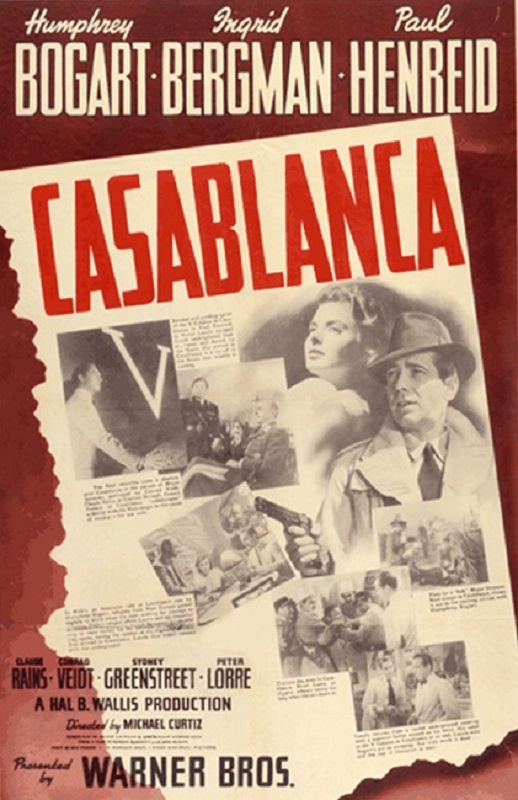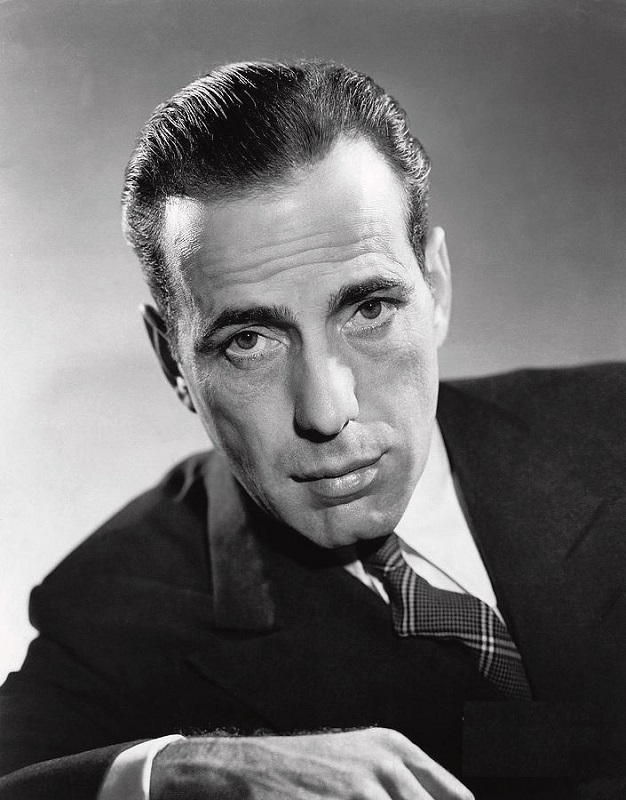Cast Photos
Character Posters
22 – Avengers: Endgame
Well, here we are at the big one. This is the climax of the Infinity Saga within the MCU franchise. Here is where we resolve the Snap, which happened in Infinity War, and add in the final player in the action/Drama, Captain Marvel. This was not only one of the biggest films in the whole Marvel tapestry, it was one of the biggest earning films of all time – ever. To quote Wikipedia, “It grossed $2.799 billion worldwide, surpassing Infinity War’s entire theatrical run in eleven days and setting a number of box-office records; it was the highest-grossing film of all time from July 2019 to March 2021”
It was incredible and absolutely lived up to all the hype. It brought in every hero from the MCU franchise. Of course the big three were there, Iron Man, Captain America, and Thor, but we also got back The Guardians of the Galaxy, The Winter Soldier, Falcon, Spider-Man, Black Panther, Doctor Strange, The Hulk, Black Widow, Hawkeye, War Machine, Ant-Man, and of cour4se, Captain Marvel. But it also brought along all the surviving peripheral heroes from all the different franchises like Valkyrie, Okoye, Shuri, Wanda Maximoff, The Wasp, The Ancient One, and even Loki. Plus a great little scene with Thor’s mother, played by Renee Ruso.
But the real highlight of the film was its awesome main villain, Thanos. Josh Brolin took that role and made his one of the greatest bad-guys of all time. He was powerful, smart, cruel, and best of all, supremely determined to achieve his goals, and willing to crush anyone or anything that stood in his way. Brolin’s performance was spellbinding, even though it was all done with facial capture technology, motion capture software, and CGI. The visual effects throughout the entire film were amazingly photo-realistic, and Thanos was no exception.
But it wasn’t just the spot-on visuals that was impressive. The story was fantastic! The action was thrilling! And the Drama was enough to bring me to the edge of tears every time I see it. Spoiler Alert. The moment when Thor’s hammer flies back and caught by Captain America is enough to me raise my fists in the air in excitement. And the death and funeral of Tony Stark is simply heartbreaking. Yes, the self-sacrificial death of Black Widow was also pretty devastating, but it just didn’t have the same impact as the film’s climax. The entire final battle scene was just mesmerizing. It gave every character their moment to shine, reminding us of why we like each of them. I can’t help but watch that final battle sequence on the edge of my seat, every time.
But I think the biggest shout-out has to go to the film’s directors, the Russo Brothers, Anthony and Joe. They knocked this out of the park. I can’t even imagine what is involved in making a movie of this magnitude, but they pulled it off beautifully, controlling and coordinating every aspect of the process from beginning to end. They didn’t direct all the movies that came before Endgame, but they brought the varied actors all together and were respectful to where every one of them came from and what came before. They made Endgame work as part of the fabric, the overall tapestry, that is the MCU.
This was the perfect ending to the Infinity Saga. It is the twenty-second film in the franchise and it is the culmination of all the movies that came before it. It summed them all up and gave them a satisfying ending. But as we all know this wasn’t the end of the franchise. It was just the end of the Infinity Saga. And in true comic book fashion, the story continued. This was not the end, but it was a phenomenal cap the Infinity Saga. This will always be one of my favorites! The surviving heroes continue to show up in future MCU movies. And the great action films just keep coming and coming. And even the films which are not as well-received, still enthrall me. I am a true fan and I hope they keep going. I love them three thousand.
Top 10 Favorite Parts
- The surviving heroes go to kill Thanos. “I went for the head.”
- Hulk tries to make time travel work with Ant-Man.
- Thor, who has suffered more loss than anyone in the MCU, is reintroduced as “fat Thor.” I love Thor’s reaction to hearing the name of Thanos.
- Planning the time-heist.
- Hulk’s conversation with The Ancient One where he gets the Time Stone
- Thor’s conversation with his mother. “I am totally from the future.”
- Hulk’s snap and the destruction of the Avengers’ complex.
- The beginning of the battle. Thor suits up with a braided beard and lightning in his eyes! Then Thor, Cap, and Iron Man fight Thanos! Also the short conversation with Thanos before the fight starts.
- Special moments in the battle: (A) Captain America catches and uses Thor’s hammer! (B) Thanos breaks Cap’s shield. (C) Hawkeye escapes the tunnels with the stones. (D) Cap faces down Thanos’ entire army alone. Then, “On your left,” and the arrival of the lost heroes. (E) Black Panther, then Spider-Man, then Captain Marvel takes the stones, trying to get them to the Brown van. (F) Captain Marvel arrives and destroys Thanos’s ship. (G) Wanda Maximoff breaks Thanos sword in half and nearly defeats him by herself. (H) Thanos tries to head-butt Captain Marvel and she doesn’t even react to it. (I) “And I… am… Iron Man.” SNAP! (J) Thanos turns to dust.
- Tony Stark’s funeral and his final message to his family. “Part of the journey is the end.”
